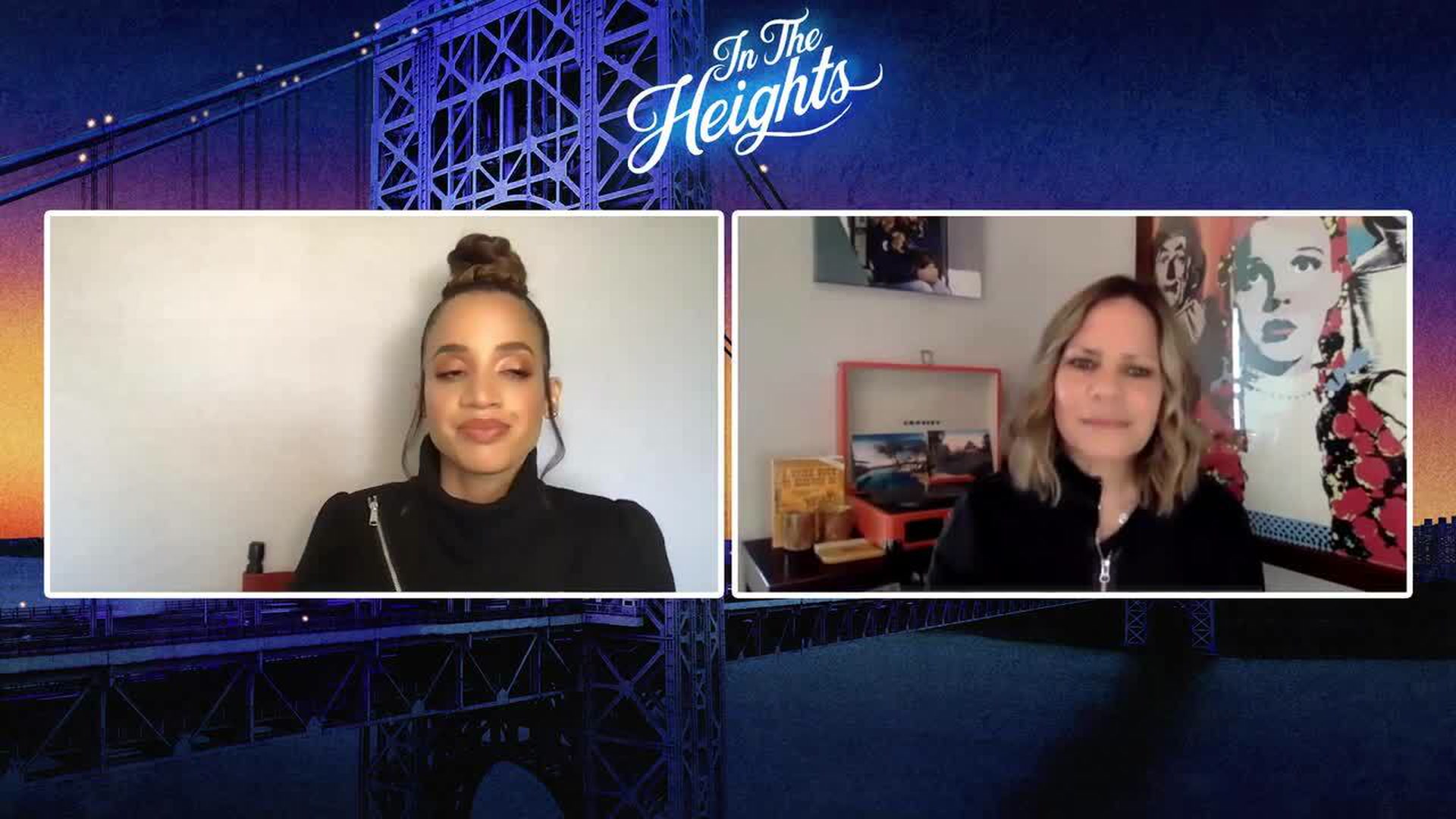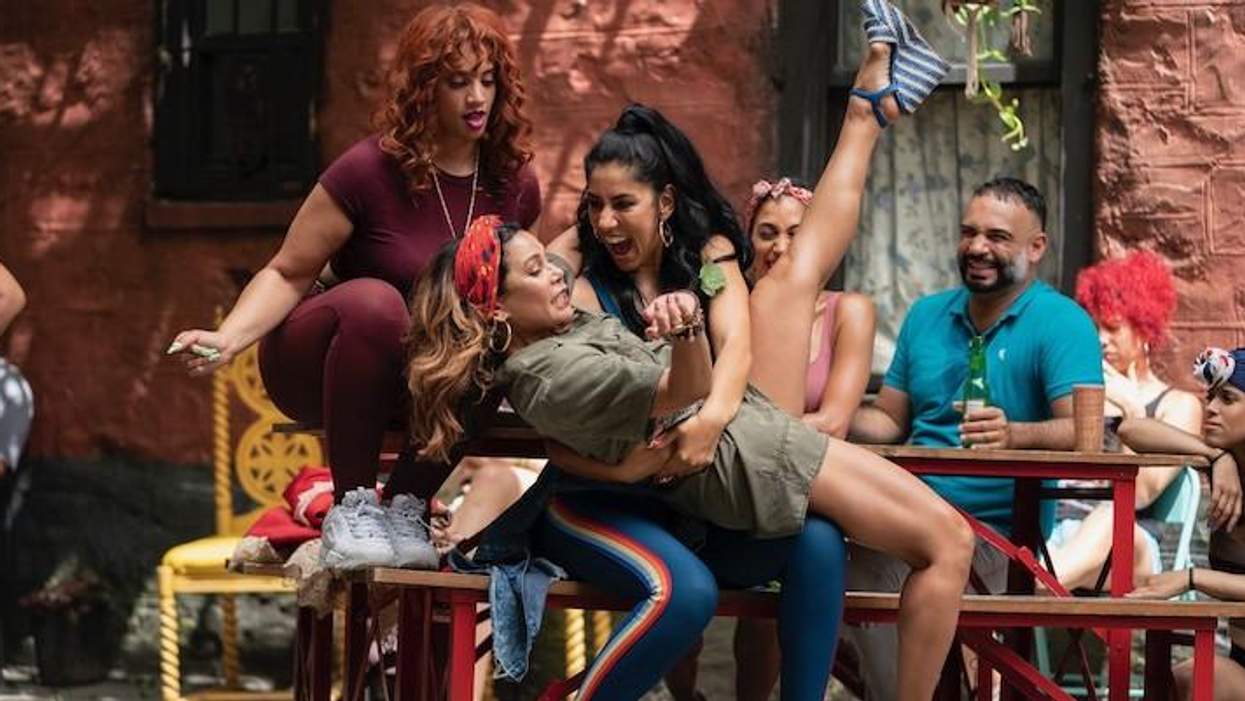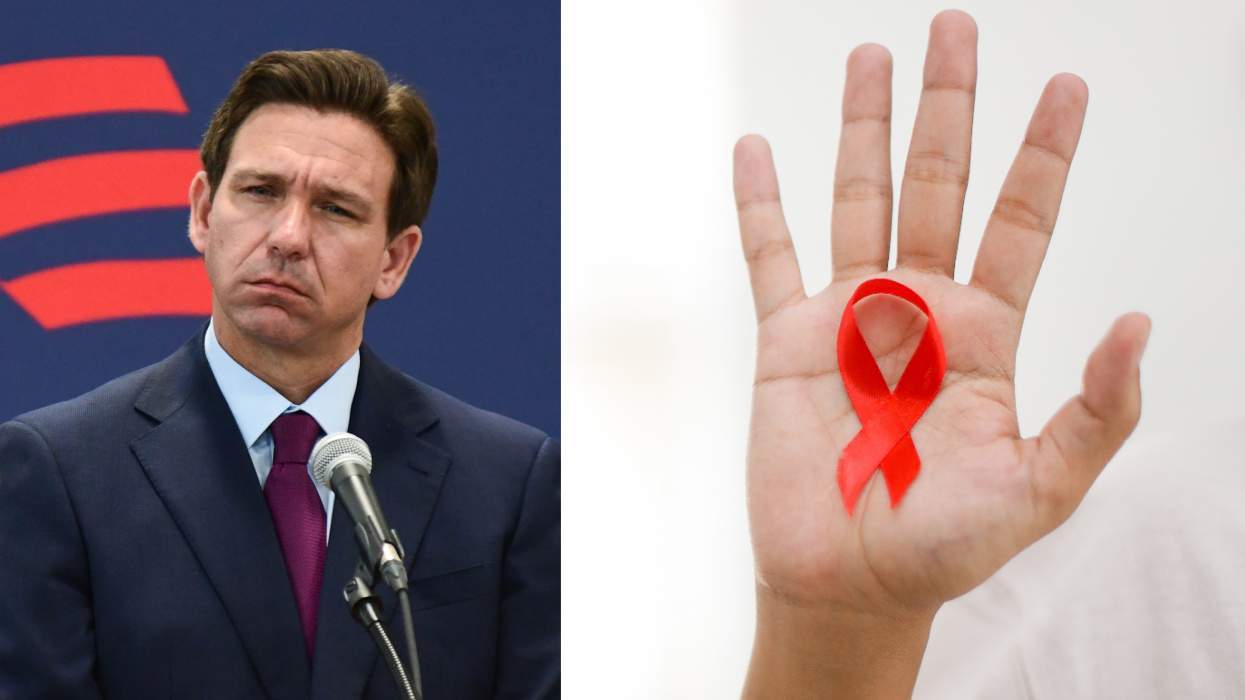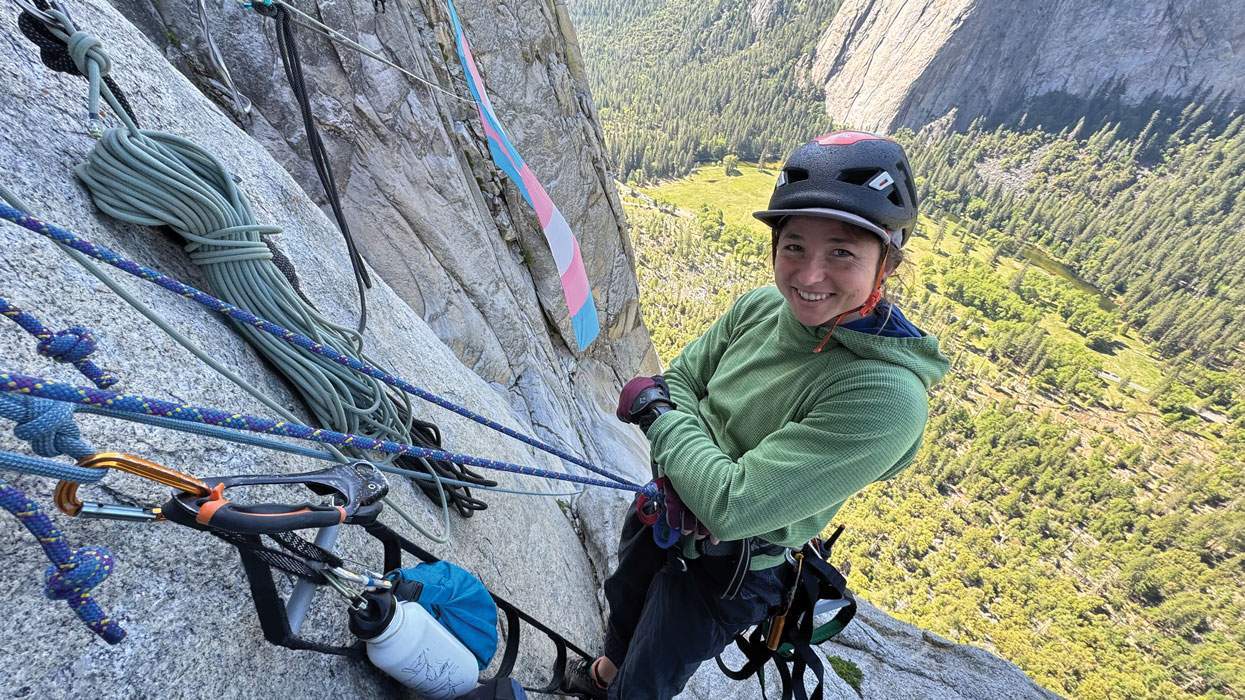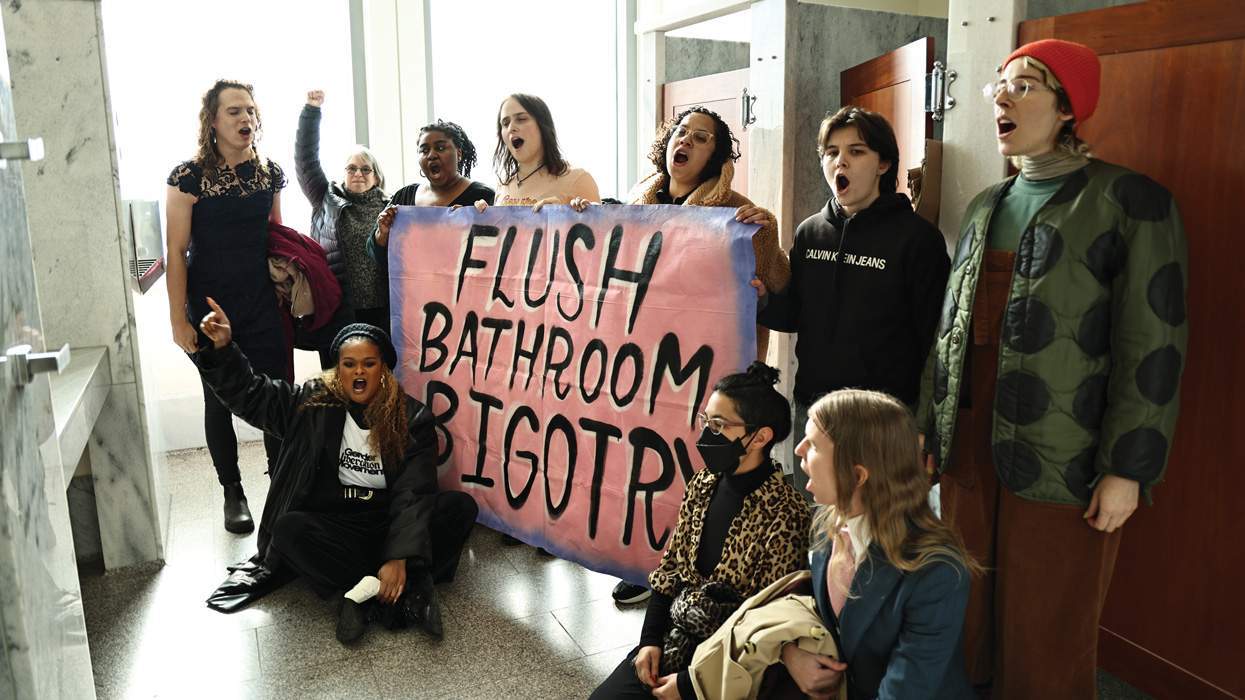There's plenty of gossip that goes down in Daniela's Washington Heights salon in Lin-Manuel Miranda's In the Heights. In the infectious song "No Me Diga," the salon-goers and stylists catch up on the latest dish about who needs a makeover, who's screwing who, and even which of their neighbors has the biggest taxi/ride (a euphemism for sure). Something that's never the point of discussion but rather just exists in the world Miranda built that's now a major motion picture directed by Crazy Rich Asians helmer Jon M. Chu is that this Daniela is not merely business partners with the character Carla but life partners as well. And the whole point is that they just get to be a happy, loving couple without it becoming a big deal or plot device.
The queer storyline wasn't in the original In the Heights that wowed audiences on Broadway beginning in 2008, but it was a natural fit now, and it's reflective of the diversity of the neighborhood. It fits seamlessly into the existing narrative about the close-knit upper Manhattan community facing gentrification, their livelihoods, and existence for those of them who are Dreamers -- a subject that became front and center under Donald Trump's draconian immigration policies.
In the big-screen version of In the Heights, a giant movie musical with all of the hallmarks of old Hollywood production numbers -- think Busby Berkeley but with a modern, expansive flair that includes everyone else who was denied visibility in those early films -- the theater legend Daphne Rubin-Vega, who originated Mimi in Rent on Broadway, plays Daniela. The beloved Brooklyn Nine-Nine star Stephanie Beatriz, who is bisexual, plays Daniela's work and life partner, Carla.
"Film history has dictated certain images that we take for granted, that impact our ideas of what perfectionism is. To represent, full stop, it's a beautiful thing -- beginning with people who look like me, body shapes, and skin tones," Rubin-Vega says of the world Miranda created and Chu has made larger than life on the screen. "And yet we are all family and related. Different family members can look absolutely differently. What the story [of In the Heights] is really about is that feeling of home and how we make a community. We just happened to be Black and brown and gay or not."
A victim of the pandemic for a time, In the Heights was originally set for a release in the summer of 2020. It was an early Hollywood film in which a pin was placed and the release date pushed. The film's impact and possible entree as the greatest movie musical of the 21st century was something that needed a wide platform -- and hopefully the widest screen possible. When Chu's camera, attached to a crane, hovers above the entire neighborhood splashing and dancing in the community pool with Vida's Melissa Barrera as Vanessa swirling on an inflatable doughnut at the center, it's the stuff of pure movie magic. It's also completely of the moment.
That production number centers on the lead character Usnavi (Hamilton and A Star Is Born's Anthony Ramos) and the choreographed splashing in the pool heightens as the chemistry between his character's and Vanessa's becomes increasingly undeniable. But it cuts to Daniela and Carla with their best friend, Cuca (Orange Is the New Black's Dascha Polanco), in a sing-song conversation. There and throughout the film, Daniela and Carla's relationship is telegraphed through waking up together, a slow dance at a family event, a head on a shoulder, intimate banter, or Carla full-on playfully straddling Daniela at a party in the barrio. Rubin-Vega says that incorporating the queer story, emphasizing the plight of Dreamers, and focusing on brown and Black communities is "decolonizing cinema" and she's here for it.
"What other way are we going to address the structural oppression that has been perpetuated? How are we going to move it?" Rubin-Vega says of storytelling as a tool. "It's an honor to play a character that has a lot of life," she says of Daniela. "As you know, when I was just starting in theater, these roles didn't exist."
"To play a woman that loves another woman is an honor to me. The symbolism of the salon. It's like the spiritual liberal hub. It's also like the gossip hub," she says.
"We're just finding the language with how they would dress. You know, having to stop the stereotyping right [of queer women and queer Latinx people]? Musical theater is so extra. What a wonderful way to have extra-ness. And you know, and not be offended by tropes that use tropes as a way in," she adds.
"We [Daniela and Carla] love each other ... [it's] ordinary, not extraordinary. It's just normal that these women get to be fully unapologetically in a community that we know has baggage around all the phobias, baggage around all the cultural trauma."
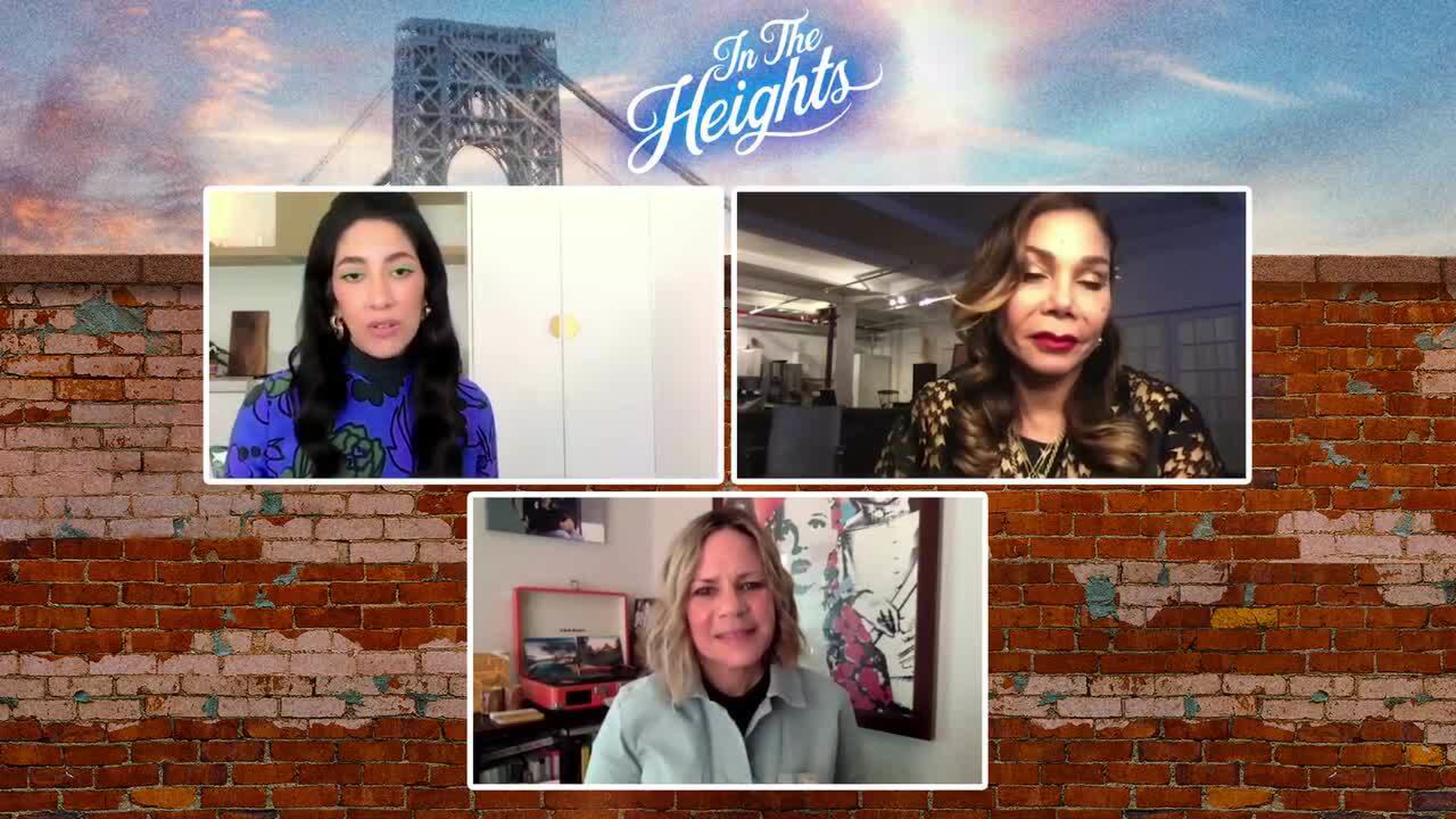
The film In the Heights, which also stars Jimmy Smits, Leslie Grace, Olga Merediz, Corey Hawkins, Gregory Diaz IV, and Miranda as "Piragua Guy," finally lands in theaters and on HBO Max on June 11.
Miranda's story has always been about the beauty of a community and home -- Rubin-Vega likens his rhymes to the impact of Shakespeare's iambic pentameter.
In an interview with Broadway World, Beatriz says, "So much of this film is about where home is and who home is to you. And for Carla, Daniela is home. Wherever Daniela is, that's where Carla feels at home."
Rubin-Vega concurs. "I could not put it more beautifully than Stephanie. We didn't talk about our relationship. We just had the relationship," she says. "Not only am I a fan of her work, but I'm a fan of hers. After knowing Stephanie, it's just like, Yeah, that's my girl. That's my boo. I feel that that relationship ownership. I do have that I can honestly [say]."
A theater and film veteran who's starred in Rent, Jack Goes Boating, Anna in the Tropics, and so much more, Rubin-Vega discusses the role of LGBTQ+ allyship.
"People in my life are [the] gay people in my life, like, a lot of people. I also have a bit of a hard time with the word ally because it is a verb, it's not a static noun. And [being an ally] is a constant behavior. It is a way of being in the world that is like breathing. And it's a consciousness for some of us more than others who have had been in so much privilege and living in supremacy."
Daniela is presented as an integral piece of the Washington Heights community in Miranda's story and Chu's film. But the implications of that representation run deep. And Rubin-Vega has thought long and hard about it.
"Playing a lesbian -- I can honestly think [about] my family legacy and just wonder how many unhappy ancestors I had," who perhaps couldn't live their authentic lives because of stigma, she says. "It's not something to get depressed about. It's something to live toward when we represent our fullness."
Watch The Advocate's interview with Miranda, Smits, and Diaz below.
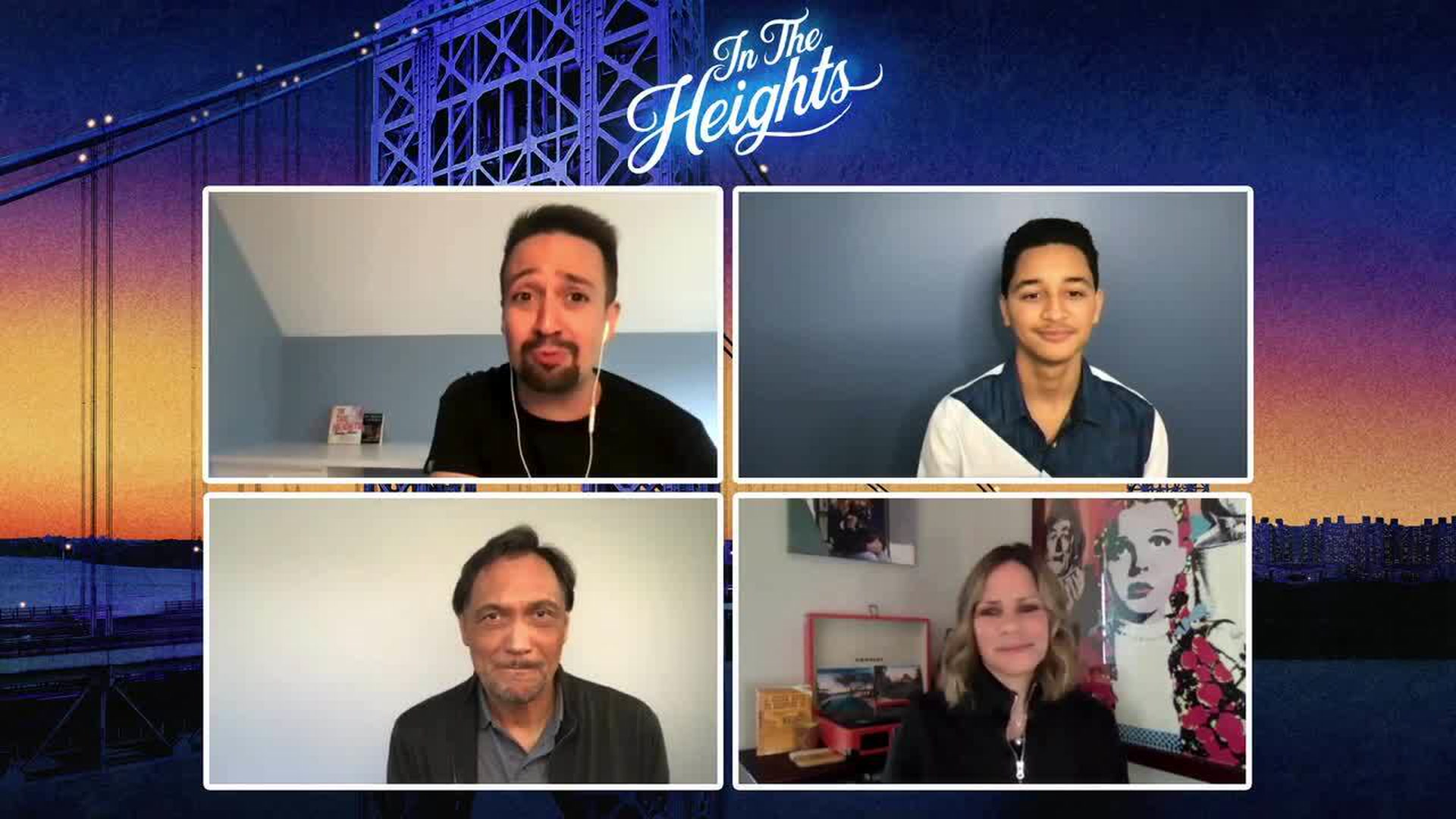
And an interview with Polanco here.
